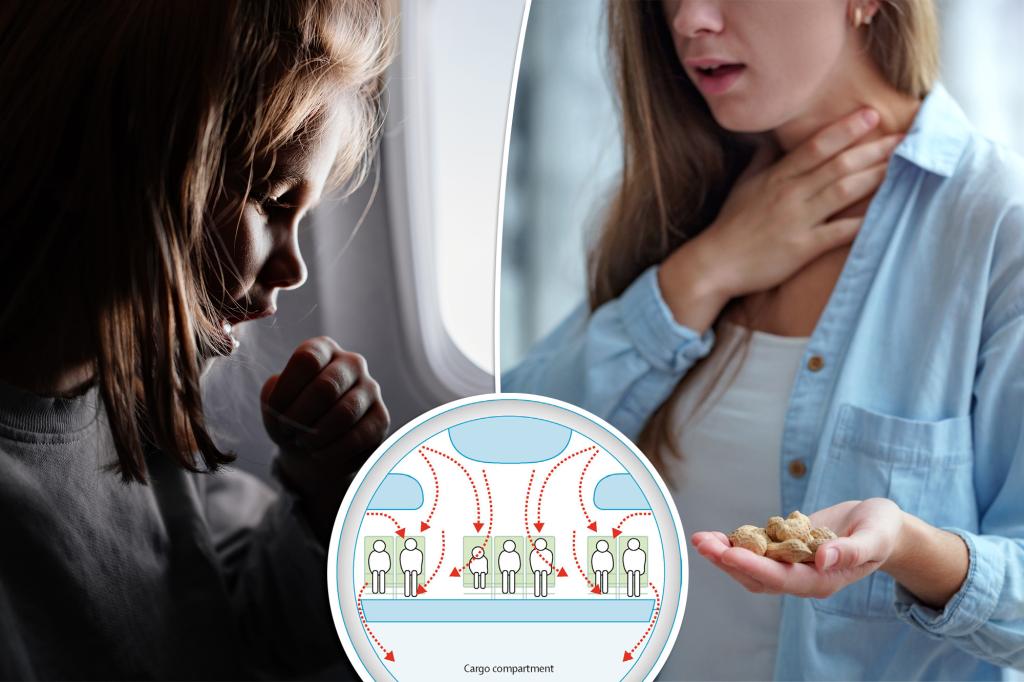The research conducted by UK allergy and aviation medicine specialists debunks the common belief that nut allergens spread through airplane ventilation systems. The study published in the journal Archives of Disease in Childhood found that food-induced allergic reactions are much less common during flights compared to on the ground. Surfaces inside the cabin pose the greatest in-flight risk for allergen residues, as airlines have minimal time for thorough cleaning between flights. The researchers emphasize the importance of passengers cleaning tray tables, seat surfaces, and seatback entertainment systems with sanitizing wipes at the beginning of a flight, especially on low-cost carriers.
While announcements asking passengers not to consume nuts during flights are common, the study suggests that they are unlikely to reduce the risk of in-flight allergic reactions and may provide false reassurance. Air exchange in large commercial flights occurs every three to four minutes, with half being recirculated air that has passed through filters. Ventilation systems are designed to circulate air across the aircraft rather than along the passenger cabin, reducing the potential for spreading contaminants. Allergic reactions to airborne food particles are rare but can occur in people sensitive to seafood or wheat flour. Reality star Bethenny Frankel, who has a rare fish allergy, has vocalized concerns over exposure to allergens during flights.
Peanut allergens can be detected at very low levels in the air when shelling nuts, but they settle quickly and are only detectable in close proximity to the nuts, according to the study authors. The research highlights that about 4.6 million US adults have a peanut allergy, with over 800,000 developing the allergy as adults. Allergic reactions can range from hives and swollen throat to more severe symptoms such as anaphylaxis, a life-threatening reaction requiring immediate medical attention. Individuals at risk of anaphylaxis are advised to carry an EpiPen in their carry-on luggage, as onboard medical kits may not always include them, and cabin crew may not be allowed to administer them.
The authors of the study recommend that airlines have clear policies related to food allergies that are easily accessible from their websites or upon request. Consistent application of these policies by ground staff and cabin crew is essential to provide reassurance to food-allergic passengers and their caregivers. The researchers stress the importance of understanding the risks associated with airborne food allergens on flights and taking necessary precautions to prevent allergic reactions. Overall, the study sheds light on the limited role of airplane ventilation systems in spreading allergens and highlights the significance of proper cleaning and allergen management practices in ensuring the safety of passengers with food allergies during air travel.


